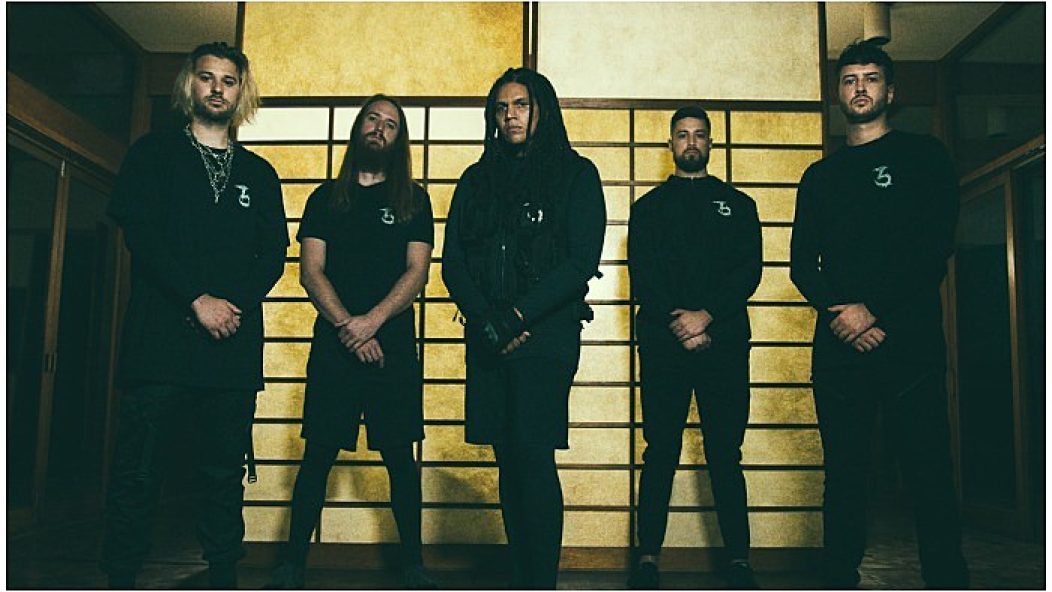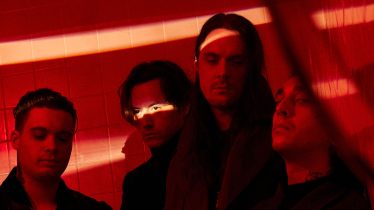
Brand Of Sacrifice knew 'Lifeblood' needed to be released independently
Through their knack for catchy breakdowns entering the depths of low-tone heaviness, dizzying technicality and piercing sharp tones, Brand Of Sacrifice carved a unique path with an endless array of sounds and possibilities. With the arrival of their sophomore album, Lifeblood, the Toronto deathcore band have solidified their stance after propelling their brutal sound to the frontlines of the genre’s rejuvenation.
Exuding a polished and confident sound, you wouldn’t be able to guess the group were originally planned as a one-off side project. They were birthed from progressive metalcore group the Afterimage as a way to try out a heavier sound while building vocalist Kyle Anderson’s idea for a song based on manga series Berserk into a whole band.
Read more: 21 underrated deathcore albums that deserve more credit than they got
Luckily for extreme-metal fans, they took notice of the colossal hype that accompanied their debut release, The Interstice, and forged on with the band as their main focus. Now following up their first full-length, God Hand, Brand Of Sacrifice are showing they still have quite a few tricks up their sleeves with Lifeblood.
We spoke with Anderson about the new record, their decision to release it independently and what sets them apart from the rest of the deathcore pack.
Lifeblood is the first album Brand Of Sacrifice are releasing independently. How do you think the viral beginnings of the band affected the ability to operate this way successfully?
We saw a lot of growth early on in the band and were able to navigate the industry and figure out what we wanted specifically as a band on the business side. We’ve always created our own artwork, we record ourselves [and] everything is DIY as far as the music goes and the production. We don’t have a manager, so to go fully independent was the next logical step. Thus far, it’s been proven to be fairly successful for us, and we’re really excited about it because we didn’t know what to expect moving forward.
With the new record, touring isn’t really an option, but there’s been plenty of hype around the release. What are your plans for the next couple of years with this new album cycle?
Everybody’s hoping that touring will come back soon, but during the pandemic, it’s a weird opportunity in a sense to release music. I think people are ingesting it in a lot more detail than they normally would going about everyday life.
How do you feel the band’s sound has refined in the years since God Hand?
Touring helps significantly with that understanding of what riffs worked better, what type of responses you were getting from certain sections or what songs worked better live, then homing in on the tool set we already had and doubling down on the things that were really working. The other main component to this record was we wanted to approach it from a standpoint where even metalcore listeners might be able to gravitate to some things that are going on. It was meant to be that gateway deathcore album.
You have some great guest spots on the record. Why did you want to have collaborations on the album?
We had originally planned to have a few features on God Hand, but with timing, it didn’t pan out. That’s something we wanted to have for this record. We wanted to have a combination of people from the metalcore world and people from the deathcore world as well.
We have Eric [Vanlerberghe] from I Prevail on the album, and we’ve got Frankie [Palmeri] from Emmure as well. Every single voice on that record is very different. Not only are they different from my style, [but] they’re different as far as tones go and style goes.
There are some really interesting orchestral sounds mixed into your songs. Will this eventually be expanded on in some way, whether it’s clean vocals or more instrumentation?
I think we have plans to try a little bit more of that maybe with some new singles, but it’s important to us to make sure that we don’t alienate our fanbase. The choir aspect of the band and our sound is part of our toolkit now. We tried to expand upon it a little bit more with our song “Lifeblood.” It’s even in our single “Animal” as well. We may try some pitches in choruses, but there’ll be accompanying screams as well to go with it.
Being at the forefront of the recent deathcore resurgence, what did you want to do differently from the Afterimage?
[Brand Of Sacrifice] were supposed to be just a side project for fun about my favorite manga called Berserk. It wasn’t supposed to be much of anything other than a quick EP of something ridiculously heavy and me trying to adapt more brutal vocals since I was primarily doing singing vocals and mid-screams in the Afterimage. I didn’t expect this to happen because at that point, I was almost throwing in the towel with music. I was already pretty deep into a career in the insurance industry, but I had a longing to create some heavy music.
If you had to choose one of your new songs to introduce someone to your band, which would you choose and why?
“Animal” would be a good pick because it’s still got a lot of deathcore flair, but it’s basically a metalcore song. I think the average metal listener could be able to understand what’s happening within that and maybe want to listen to heavier deathcore music as a result of that.
What are your plans for the next couple of years with this new album cycle?
After Lifeblood, we’re going to start focusing on doing a slew of singles, which will eventually tie into an EP. I think we’re going to focus on telling a story with music videos as well. We’re going to tie them all in together. Not to give too much away, but I think that’s the next step. Hopefully by that point, the show will go on again, and we’ll be able to get back on the road.
The full interview is featured in Alternative Press’ 100 Artists You Need To Know, which is available here.







